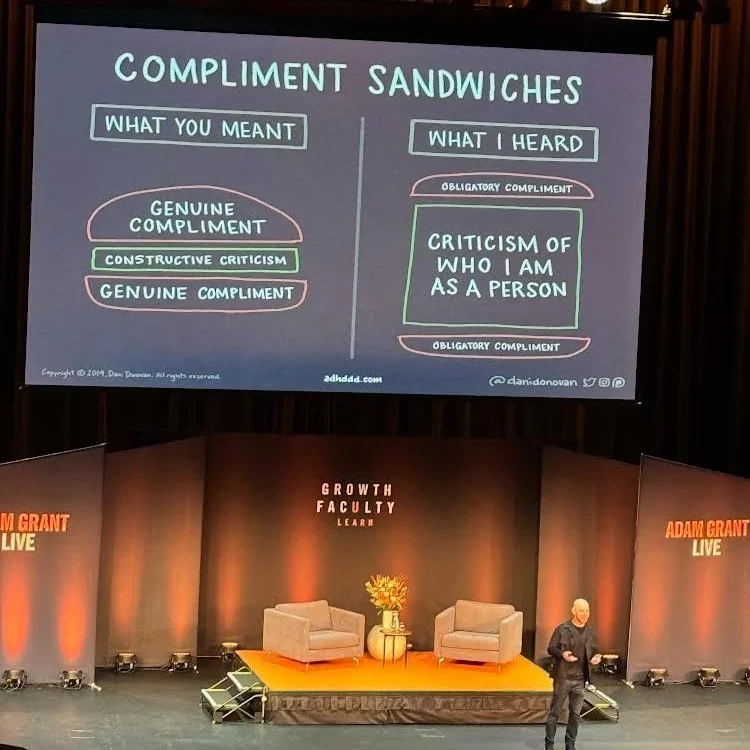5 Inspiring Insights from Adam Grant Live
We recently attended Adam Grant live in Sydney – hearing from bestselling author and renowned organisational psychologist himself about work culture, motivation, and how to unlock the 'hidden potential' which lies within all of us. There were many excellent takeaways throughout the day, but we've shared 5 which we found the most insightful.
“I thought I needed confidence to take the leap... But the only way I was going to gain confidence was by taking the leap”
This quote encapsulates an excellent lesson Adam learned from a coach during his aspirations to become an Olympic diver. Lack of confidence in his ability had been holding him back from taking a leap (quite literally!), but it was actually taking that leap that gave him the confidence to do it again and continuously improve every time.
This principle can be applied to any aspect of life. Much like Adam admits about himself, it's about realising that most of us have the relationship between confidence and growth backward. If we wait to gain confidence before we act, how can learn and grow from mistakes and failure?
“10 is for excellent, not for perfect”
Perfectionism is a pinnacle that rarely exists, yet many of us continually strive for it… and its holding us back from being out best. Instead of aiming to be ‘perfect’ aim to be ‘better’. Adopting this mindset allows you to celebrate growth and improvement as worthy achievements!
Just as importantly, it allows space for your performance each day to be different. As Adam says “your best will look different every day” and suggests you talk about needing two targets. “You want an aspirational score and an acceptable good enough score”. So, aim high but cut yourself some slack. It's all about progress, not perfection.
“Turn your critics into coaches”
This would have to be some of the most insightful advice of the day. Adam referenced research which showed the benefits of asking for advice, rather than feedback, to help you improve for next time. The reason? Asking for feedback means people will share retrospective insights which focus on what you didn’t do so well. Asking for advice means people will look to the future to share actionable suggestions about what could work next time. He notes that not all advice you get will be great, so be open-minded but discerning and look for the golden nuggets!
“It turns out the ‘compliment sandwich‘ doesn‘t taste as good as it looks”
Contrary to what we've been told, Grant challenges the effectiveness of the "compliment sandwich" approach to feedback. People often dwell on the negative feedback and ignore the positive or vice versa. So instead, he suggests embracing the 'the second score,' an idea shared by Sheila Heen (Harvard Professor and author whose work focuses on the art of effective feedback).
Think of negative feedback as your first score, and consider it unchangeable and indisputable. Then give yourself a second score on how well you respond to the criticism. This shift in perspective creates space for meaningful self-reflection and demonstrates your commitment to continuous growth and improvement.
Adam challenges the ‘compliment sandwich’ approach to feedback.
“Put your growth above your own ego”
Uncovering your hidden potential can only happen when you choose to put your ego aside (as hard as it might be) and look for opportunities to grow and improve. Take on board that negative feedback and look for the opportunity instead. Reflect on that failure and think about what will help you improve next time. Get comfortable with perfection being an unrealistic goal and recognise success in improvement and development instead.


